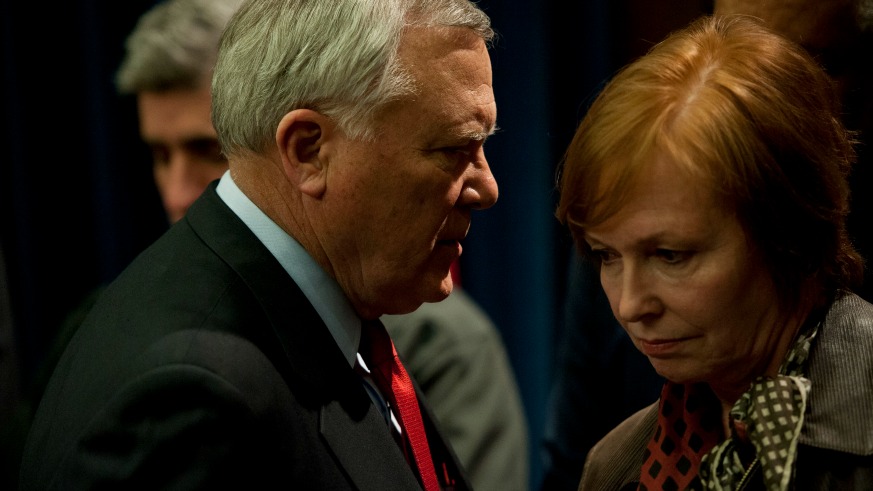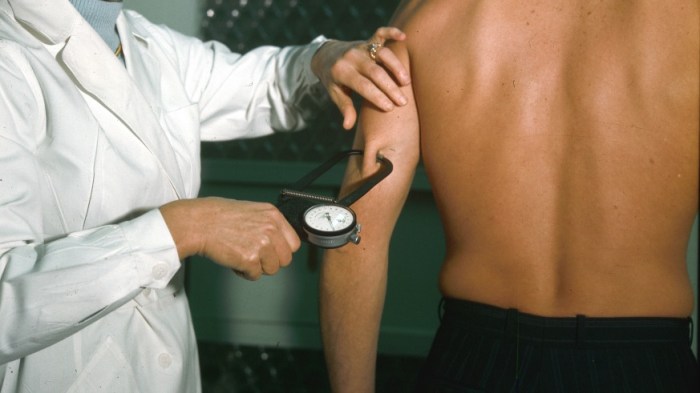In 2012, Georgia launched GeorgiaSHAPE, a pilot program aimed at combatting childhood obesity. The state ranked second in childhood obesity that year; in 2017, it’s 17th.
Brenda Fitzgerald — now the head of the U.S. Centers for Disease Control — was the champion behind the successful program launched with underwriting by various companies, including $1 million from the Coca-Cola Foundation.
Her tie to the soda giant has some concerned that she’ll allow the company to have direct impact on her role as the director of United State’s biggest health agency. The problem, according to critics, is that GeorgiaSHAPE omits the effect of sugary drinks on childhood obesity and instead focuses on 30 minutes exercise a day as the main way to combat the problem.
“Solving Childhood Obesity Requires Movement,” Fitzgerald said in an article posted to the foundation’s website. “We’re not talking about trying out for the football team or preparing for the Olympic Games. We’re talking about walking a mile and touching your toes.”
While there is no doubt that exercise has a whole host of health benefits, it’s poor diet — and specifically, sugary drinks — that have more of a direct impact on climbing childhood obesity rates. The CDC says “Frequently drinking sugar-sweetened beverages is associated with weight gain/obesity, Type 2 diabetes, heart disease, kidney diseases, nonalcoholic liver disease, tooth decay and cavities, and gout, a type of arthritis.”
Fitzgerald’s appointment to the top health job — along with President Trump’s proposed budget cuts to the CDC — has some concerned that this could pave a path for Coca-Cola to have a direct impact on the agency’s policy in the future. The concern isn’t unfounded: Dr. Barbara Bowman, former director of CDC’s Division for Heart Disease and Stroke Prevention, resigned from her longtime position in the agency in 2016 after the discovery that she offered “guidance to a leading Coca-Cola advocate” on how to influence leaders on public health policy.
“We hope Dr. Fitzgerald, as head of CDC, avoids partnering with Coke on obesity for the same reason she would avoid partnering with the tobacco industry on lung cancer prevention,” said Jim O’Hara, director of health promotion policy at the Center for Science in the Public Interest, told The Washington Post.
At least one former Coca-Cola executive is excited about Fitzgerald’s promotion.
“An excellent choice!” Rhona Applebaum, Coca-Cola’s former chief health and science officer, tweeted after the announcement.
Update – August 3, 2017; 10:31 am
The Coca-Cola Company issued this statement in response:
“As a Georgia-based company that’s been operating here for more than 130 years, we have a long history of supporting local programs and initiatives that are important to our home state and hometown of Atlanta. In keeping with that tradition, our company’s foundation provided multi-year grants to support programs aimed at addressing childhood obesity in Georgia.
The Coca-Cola Company understands that we have a role to play in helping people reduce their sugar consumption. That’s why we support the recommendation of the World Health Organization (W.H.O.), that people should limit their intake of added sugar to no more than 10 percent of their total daily calorie intake. We have begun a journey toward that goal. So we are taking action to offer people more drinks in smaller, more convenient sizes, reducing sugar in many of our existing beverages, and making more low and no-sugar beverage choices available and easier to find at local stores. We’ll also continue making calorie and nutrition information clear and accessible so people can make more informed choices for themselves and their families without the guesswork.”



















